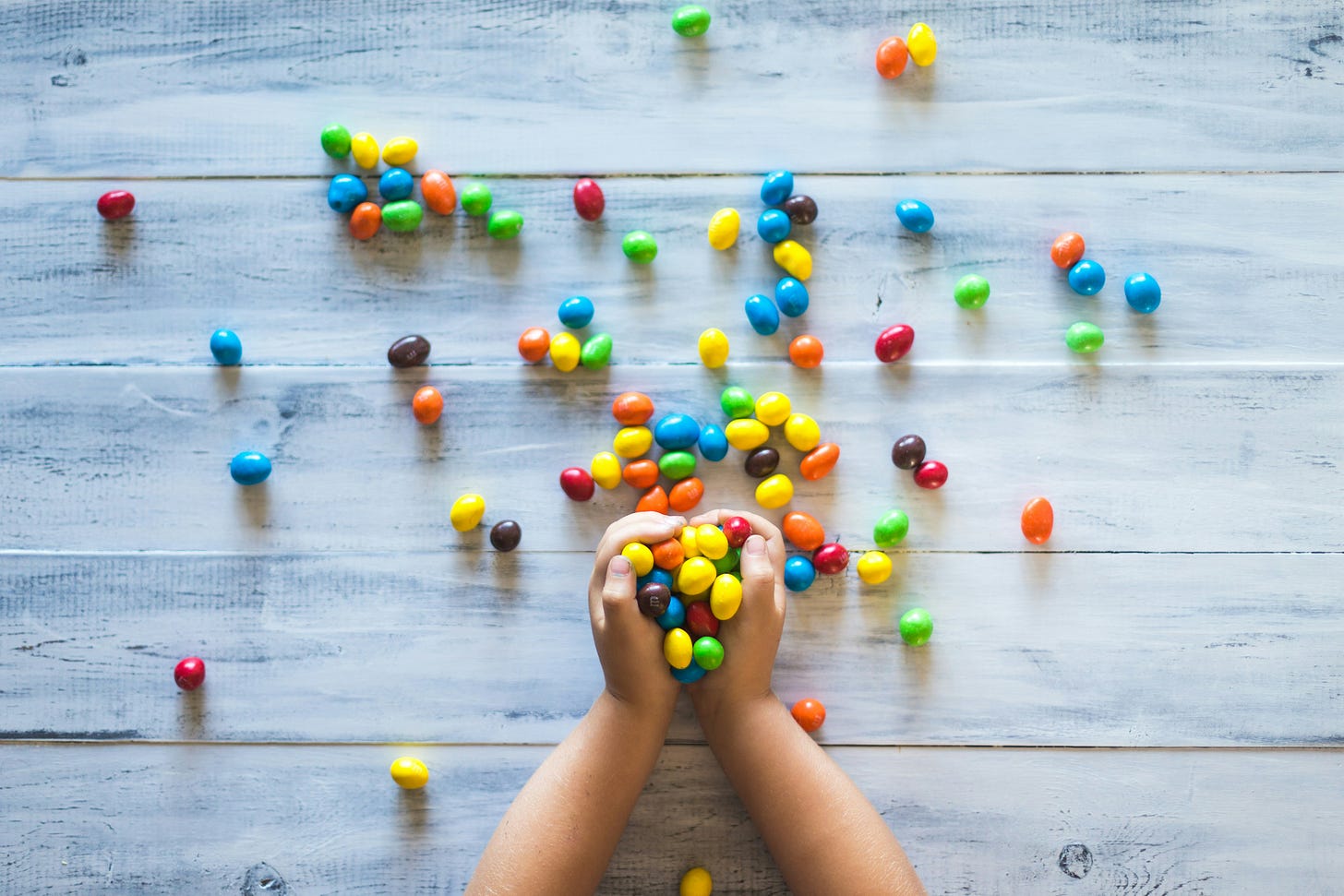
My daughter is going as the Little Mermaid for Halloween, and I’ve been feeling uncomfortable about it.
The costume itself is fine—long-sleeved and appropriate for a preschooler, good for a possibly chilly fall night, if a bit too sparkly in a way that’s giving pageant vibes. But knowing that she’s trying to emulate Ariel—a character with ridiculously unrealistic proportions and sexualized features, who exists within a movie that has many other problematic body-image messages—has felt a little icky.
Granted, I brought this on myself by singing Little Mermaid songs to my daughter at bedtime (in my defense, they’re permanently seared into my brain from my Xennial childhood) and honoring her recent requests to play “Part of Your World” and “Under the Sea” on repeat at all other times. It was probably inevitable that at some point she would ask to see the movie, and from there she became obsessed. We’d previously showed her other Disney films with more-realistic body portrayals, like Encanto and Moana, and she still loves those—but right now, they don’t hold a candle to The Little Mermaid.
Rather than trying to discourage her from her new obsession, which I figured might backfire, I did what I often do when I’m feeling conflicted about a decision: I looked at the science to see what I could find. And thankfully, in this case, the data was somewhat reassuring.
Though the evidence base is small and mostly observational, several studies have found that Disney princesses aren’t linked to kids’ body image in the ways we might assume. A 2021 study in 307 kids looked at how much they engaged with “princess culture” (which the researchers defined as consuming Disney-princess media, identifying with their favorite princesses, and playing with princess toys) in preschool and 5 years later. It found that there was no association between engaging with princess culture as a preschooler and adhering to female gender stereotypes at an older age. Also, surprisingly, early princess engagement was actually linked to higher body esteem and lower endorsement of patriarchal beliefs about women (especially for girls) and about masculinity (especially for kids from lower-income backgrounds). But the effect sizes in the study were small to moderate, and 87 percent of the participants were white, so the results may not be generalizable.
Additionally, a 2023 study by some of the same researchers in a different sample of 340 children looked at whether the body type of a favorite Disney princess had any effect on kids’ body confidence, or on whether they engaged in stereotypically gendered play. It followed them for a one-year period, from ages three-and-a-half to four-and-a-half, and found that princess body size didn’t have a significant overall effect on body confidence at follow-up. Also, interestingly, for kids whose favorite princess had an “average” (rather than thin) body size, there was a positive link between the amount of time spent playing pretend princess at age three-and-a-half and their body confidence at four-and-a-half (and there was no correlation for kids whose favorite princess was thin). Again, about 84 percent of the participants were white, so clearly there needs to be more research done in more-diverse groups.
Given that these are correlational results, it’s possible that there are other reasons for this link that have nothing to do with exposure to princesses in and of itself. Still, to me, this evidence is somewhat calming: it seems to indicate that at least there isn’t an obvious, overwhelmingly negative effect of letting kids engage with princess culture.
Am I psyched to support this Ariel obsession, or am I going to buy my daughter tons more princess-themed toys and clothes going forward? No. That’s just not me, and I don’t really think it’s her, either. (Her favorite things to do right now are building with magnetic tiles and pretending to teach us swim lessons—I think the Little Mermaid fixation has more to do with swimming than anything else.) But at least I’m not carrying around a low-level anxiety that I’m ruining her body image by tolerating her love of Ariel.
This experience got me thinking about another thing that many parents worry about this time of year: candy. Given my background as an eating-disorders dietitian and my own history of recovery from disordered eating, it may come as no surprise that I’m way more chill about my daughter eating candy than I’ve been about her interest in Disney princesses.
In our house, candy is available year-round and is no big deal. We practice a version of Ellyn Satter’s Division of Responsibility, aka responsive feeding (for lots more on those concepts, check out this guide from
). My daughter definitely loves candy, don’t get me wrong—but she isn’t obsessed with it, as kids who aren’t allowed to have sugar sometimes are. There’s no furtiveness, no sneaking back for more when she thinks people aren’t looking, no self-judgment for eating the foods. She usually just eats her sweets and moves on to other foods or other activities. She’s still young, so who knows how this may change—maybe one day I’ll eat my words! But scientific evidence does show that restricting kids’ access to palatable foods focuses their attention on those foods and increases their desire for them, while also potentially generating negative feelings about their eating and disconnecting them from hunger and fullness cues.And yet I can understand the general nervousness about sugar among parents (and people in general), given all the bad press it gets in our culture. Certainly I’m not advocating that we feed kids nothing but sweets—it’s important to give them other options to ensure variety, balance, and satiety (and of course that’s much easier in the context of food security). But I think parents feel a huge amount of pressure to strictly control kids’ access to sugar in a way that may actually backfire. And that pressure comes from all the messages we get about how sugar is supposedly uniquely bad for health, as Karen Throsby articulated in this great interview from last year.
So today I want to talk about the evidence on sugar and health. The question below asks about sugar specifically in relation to two particular health issues, and in my answer I’ll address those, but I’ll also talk about sugar and well-being more broadly—what the science really says, as well as its inherent limitations. Hopefully this will be helpful to anyone grappling with sugar anxieties this time of year.
The answer is for paid subscribers, and you can upgrade to paid here to read it. You can also ask your own question for a chance to have it answered in an upcoming edition.
I have a history of eating disorders, and while I've mostly made peace with intuitive eating and my (now larger) body, I still have some anxiety about the long-term health effects of my diet, especially when it comes to added sugar. I have a family history of heart disease and Alzheimer’s, and in my research on these diseases I keep coming across the message that how I eat now could impact my risk for acquiring these health issues later on. In particular, I often see the claim that diets high in added sugars can increase risk for dementia and heart disease. But anytime I've tried to make changes in my diet, no matter how small and reasonable (i.e. cutting back on the sugar in my iced coffee), I always end up spiraling into a restriction and binge cycle. So I'm wondering: how real is the connection between added sugar and Alzheimer’s and heart disease? Is it something I need to be concerned about, or is it just diet culture bullshit?













